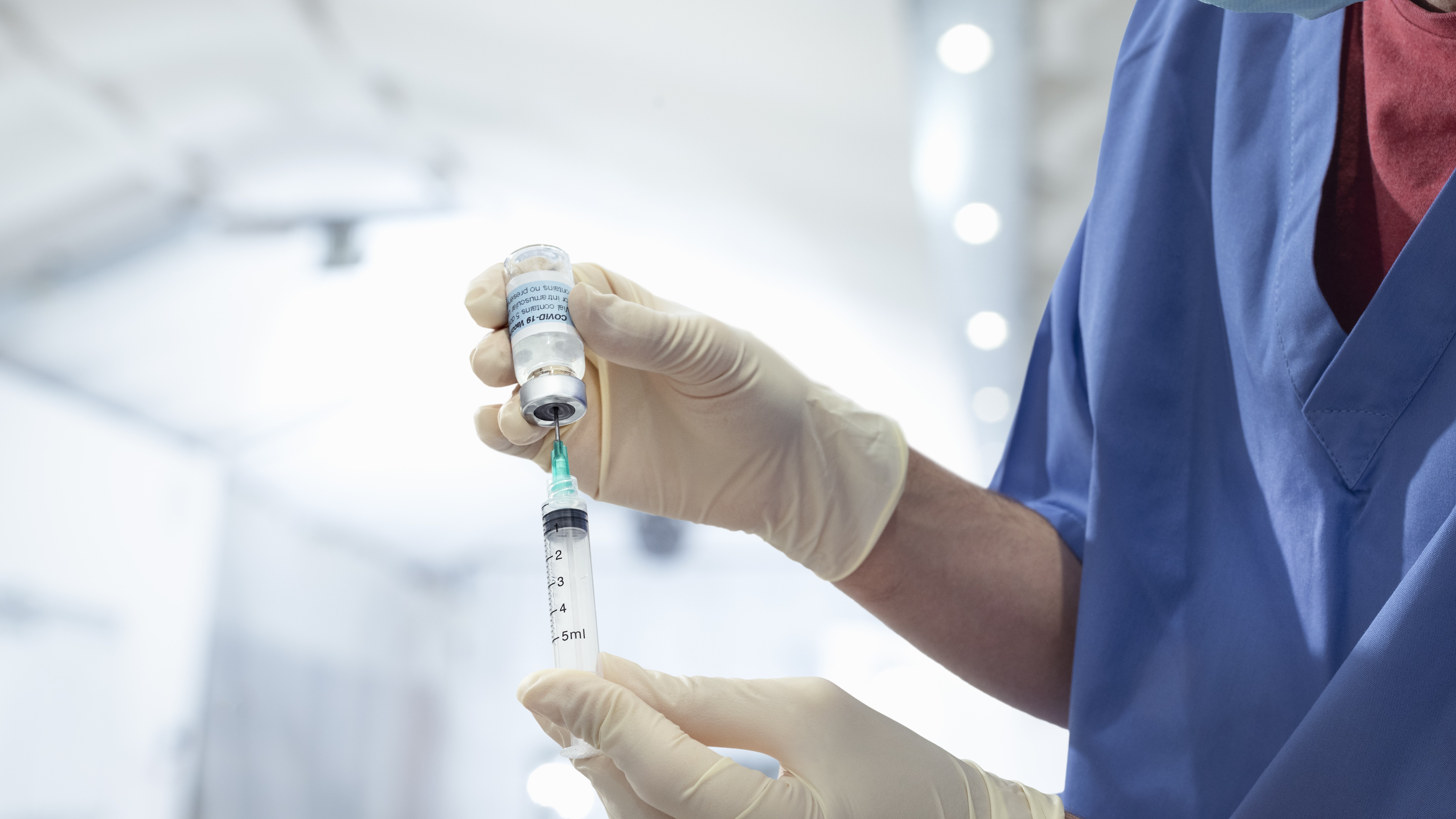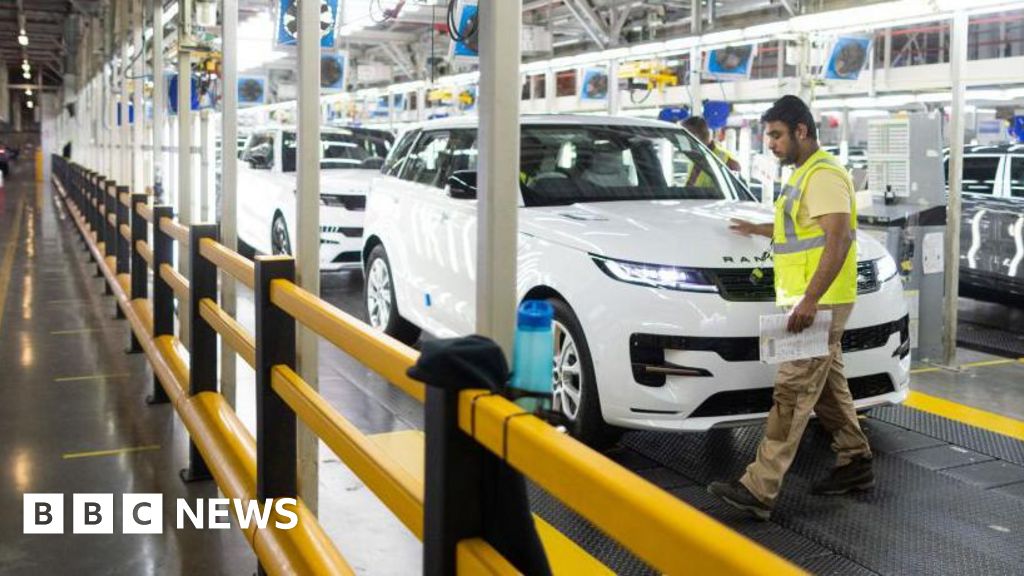By Theresa Sullivan Barger
Copyright livescience

Skip to main content
Close main menu
Live Science
Sign up to our newsletter
View Profile
Search Live Science
Planet Earth
Archaeology
Physics & Math
Human Behavior
Science news
Life’s Little Mysteries
Science quizzes
Newsletters
Story archive
Lab brains could become conscious
Jaguar smashes swim record
Mysterious hand positions on Maya alter
It’s too late to stop AI, readers say
Anthropologist Ella Al-Shamahi on human origins
Don’t miss these
Viruses, Infections & Disease
‘We have basically destroyed what capacity we had to respond to a pandemic,’ says leading epidemiologist Michael Osterholm
Medicine & Drugs
CDC committee votes to change measles vaccine guidance for young children
Coronavirus
COVID-19 vaccines for kids are mired in uncertainty amid conflicting federal guidance
Medicine & Drugs
RFK’s handpicked advisers are coming for the childhood vaccine schedule. Here’s what to know.
Medicine & Drugs
Thimerosal carries no health risks and is almost never used anyway. So why are anti-vaxxers obsessed with it?
Medicine & Drugs
Unpacking RFK Jr.’s (many) false claims about COVID vaccines
‘Universal’ cancer vaccine heading to human trials could be useful for ‘all forms of cancer’
Medicine & Drugs
RFK Jr. wants to overhaul the country’s ‘vaccine court.’ Here’s what stands in his way.
Alzheimers & Dementia
Vaccines hold tantalizing promise in the fight against dementia
Medicine & Drugs
Scientists gave mice flu vaccines by flossing their tiny teeth — and it worked
Experimental HIV vaccines show promise in early safety test
Medicine & Drugs
You may not really be allergic to penicillin. Here’s how to find out if you are.
Chemotherapy can make healthy blood cells ‘look old’
Some early-onset cancers are on the rise. Why?
Medicine & Drugs
Experimental treatment for high cholesterol edits DNA in the body to reduce LDL
Medicine & Drugs
Who is eligible for this year’s COVID vaccine? Everything you need to know
Theresa Sullivan Barger
20 September 2025
After an unusual meeting, the CDC’s Advisory Committee on Immunization Practices has issued new recommendations about this year’s updated COVID-19 vaccines. Here’s what to know.
When you purchase through links on our site, we may earn an affiliate commission. Here’s how it works.
New recommendations for this year’s COVID-19 vaccines have come out.
(Image credit: Monty Rakusen via Getty Images)
Staff changes at the U.S. Centers for Disease Control and Prevention (CDC) ushered in changes in which populations were advised to get this year’s updated COVID-19 vaccine. People under age 65 faced confusion and uncertainty over whether they and their children were eligible for the 2025-2026 shot, where they could get it and whether their health insurance would cover the cost.
On Friday (Sept. 19), an influential CDC committee — the Advisory Committee on Immunization Practices (ACIP) — said that everyone over 6 months old can get this year’s COVID-19 vaccine and have the cost covered by insurance, provided they or their caregiver talk with their pharmacist or another health care provider about the shot’s risks and benefits.
This was an unexpected result after an at times contentious and confusing two-day meeting, during which the ACIP members weighed heavily restricting American’s access to COVID-19 vaccines. They debated whether to require everyone to get a prescription prior to seeking the shot, for instance.
You may like
CDC committee votes to change measles vaccine guidance for young children
COVID-19 vaccines for kids are mired in uncertainty amid conflicting federal guidance
RFK’s handpicked advisers are coming for the childhood vaccine schedule. Here’s what to know.
Here’s what to know about the ACIP’s recommendation and what it might mean for people seeking the vaccine this year.
Related: Have you gotten this year’s COVID vaccine? (Poll)
Who is eligible for the updated COVID-19 shot?
The ACIP’s recommendations must now be approved by the CDC director, according to the CDC website. If they are approved, anyone above the age of 6 months will be eligible to get the 2025-2026 COVID-19 vaccine without a prescription and without a copay. This is true even if the individual seeking the vaccine does not have a health condition that puts them at higher risk for a severe COVID-19 infection.
The ACIP’s endorsement of the vaccine was a bit wishy-washy, rather than clear and straightforward. The committee said that anyone 65 and older may receive the COVID-19 vaccine in consultation with a medical provider, which could include a pharmacist. However, it emphasized that the decision to get the vaccine was “based on individual-based decision making … also known as shared clinical decision making.”
“In lieu of that full-throated endorsement, the ACIP has used that language in the past,” said Jason Schwartz, associate professor of public health at Yale School of Public Health. The committee has generally used the “shared decision making” language when it wasn’t comfortable making an unambiguous vaccine recommendation, he told Live Science.
But nonetheless, “for all individuals over the age of 6 months, this vaccine will remain on the CDC vaccination schedules, and be required to be included at no cost on private insurance plans,” Schwartz clarified.
For those between 6 months old and 64 years old, the ACIP’s recommendation was the same as for those over 65: individuals can get the vaccine in consultation with a medical provider, which could be a pharmacist.
The committee also said that health providers should discuss the risks and benefits of the vaccine with each individual. This includes reviewing known risk factors for severe outcomes from COVID-19, such as age, prior infections, immunosuppression and other illnesses. (Those risk factors are listed lower down in this article.) Schwartz did note that this suggestion from the committee doesn’t carry advisory weight — it’s essentially the members sharing their thoughts.
The ACIP did not make any specific recommendations for pregnant people. That’s despite evidence presented to the committee about the risk of severe COVID-19 in infants under 6 months, who cannot get the vaccine themselves. Giving the vaccine in pregnancy provides protective antibodies to newborns to help bridge that gap.
Pregnant people are still eligible for the vaccine under the ACIP’s general recommendation.
Do you need to see a doctor or get a prescription to get the COVID-19 vaccine?
During the ACIP meeting, some committee members suggested patients see their primary care provider, but other committee members expressed concern about a lack of access to clinicians and overburdening an already overloaded health care system.
ACIP member Dr. Cody Meissner, a pediatrics professor at Dartmouth Geisel School of Medicine, said he would have to wait a year to get an appointment with his internist. Another committee member, Catherine Stein, an epidemiologist and professor in the Department of Population and Quantitative Health at Case Western Reserve University, said the people who are most at risk for complications from COVID-19 are also those most likely to lack a PCP. Some 30% of Americans don’t have access to a PCP, Stein said.
The committee also considered whether to require a prescription for the COVID-19 vaccine, but ultimately voted against, so no prescription will be required. The ACIP is only charged with vaccine recommendations, and the sentiments relating to requiring a prescription are “not within their purview,” Schwartz said, adding that the decision is made by experts within the CDC.
What are risk factors for severe COVID-19?
According to the CDC, these are factors that increase the risk of severe COVID-19:
Blood cancers
Blood disorders (including sickle cell disease)
Cerebrovascular diseases
Chronic kidney disease
Some chronic lung diseases
Some chronic liver diseases
Cystic fibrosis
Type 1 and 2 diabetes
Gestational diabetes
Disabilities, including Down syndrome, ADHD, autism, cerebral palsy
Heart conditions
HIV or tuberculous infection
Mood disorders, including depression and schizophrenia
Dementia or a neurologic condition
Parkinson’s disease
Physical inactivity
Chronic liver disease
Kidney disease
Current or recent pregnancy
Primary immunodeficiencies
Tuberculosis
Current or former smoking
Substance use disorder
Solid organ or blood stem cell transplant recipients
Use of immunosuppressive drugs
Are any states diverging from the federal recommendations?
Yes. That said, the ACIP’s recommendations were expected to be more restrictive, based on earlier changes by the CDC. Now the state-level guidance does not differ dramatically from the federal.
Earlier in September, California, Oregon, Washington and later, Hawaii established the West Coast Health Alliance, a regional partnership created to uphold scientific integrity in public health recommendations on issues like vaccine recommendations and infectious-disease management.
The West Coast Health Alliance released recommendations on Wednesday (Sept. 17) that the COVID-19 vaccine be given to healthy children ages 6 months to 2 years old, and to pregnant women. For children ages 2 to 18, the alliance recommended weighing a child’s personal risk level for severe COVID-19 to determine whether they’d benefit from a vaccine.
The West Coast Health Alliance also recommended that anyone who is aiming to become pregnant, is pregnant, has just given birth or is lactating get the vaccine. Everyone ages 65 and older; everyone under 65 with risk factors; all those who are in close contact with others with risk factors; and all people who want to protect themselves against severe COVID-19 should also get the vaccine, the alliance says.
Related: CDC committee votes to change measles vaccine guidance for young children
Additionally, on Thursday, seven Northeastern states announced they had formed the Northeast Public Health Collaborative to promote and protect evidence-based public health by collaborating on issues such as vaccine recommendations and infectious disease management. The coalition comprises Maine, Massachusetts, Rhode Island, Connecticut, New Jersey, Pennsylvania, Maryland, Delaware, Vermont and New York, as well as New York City, specifically.
The Northeastern coalition announced Thursday its recommendations for who should get a COVID-19 shot based on guidelines from the American Academy of Pediatrics (AAP), the American College of Obstetrics and Gynecology and the American Academy of Family Physicians (AAFP). These guidelines recommend that all children ages 6 to 23 months get a vaccine, along with all adults ages 19 and up.
It also specifies groups of kids ages 2 to 18 years old who should be vaccinated, while other children in that age range may be vaccinated, if desired by the caregiver.
Who can benefit from an updated COVID-19 shot, based on scientific data?
All people 6 months and older can benefit from the 2025-2026 COVID-19 shot. That especially goes for young children under 1 year and adults over 65, Dr. Pamela Rockwell, a clinical professor of family medicine at the University of Michigan Medical School told Live Science. Historical data show those groups are most at risk of hospitalization for severe COVID-19.
Gina Koch, a board-certified family nurse practitioner in Missouri, said she’d like everyone who wants a vaccine to get one.
Can uninsured people get the vaccine?
Yes. Uninsured people can get a vaccine in consultation with their medical provider or pharmacist, if the new ACIP recommendations are adopted.
“The answer is always, ‘Yes, but talk to your health care provider,'” said Koch, who is also an associate professor and director of graduate studies in Nursing at Southeast Missouri State University.
Where can people get the updated COVID-19 shot?
In addition to their local pharmacy, people can get a COVID-19 vaccine at their local health department or possibly from their PCP, said Koch.
Local health departments “often will get vaccines before or at the same time pharmacies do,” said Koch, who works in a rural health clinic as part of her state’s health department. She noted that some states or counties will provide vaccines to anyone who wants them, as long as they’re not contraindicated — meaning the person can’t get a given vaccine due to an existing health issue, for instance.
“There are two counties south of here where they’re requiring a prescription from your PCP [primary care provider],” she added. So in some cases, individuals may need to first speak to their PCP to get access to a COVID-19 vaccine at their local health department.
Some state or local health departments offer free vaccine clinics to people from all financial backgrounds, she added. Residents can check their local newspapers or TV stations for health departments’ advertisements saying when they’re holding vaccine clinics.
How can people check whether insurance will pay for COVID-19 shots in their state?
They should contact their insurance carrier, Rockwell said. If the CDC approves the ACIP’s recommendations, insurance companies will be required to pay for the shot.
RELATED STORIES
—’These decisions were completely reckless’: Funding cuts to mRNA vaccines will make America more vulnerable to pandemics
—Nobel Prize in medicine goes to scientists who paved the way for COVID-19 mRNA vaccines
—What are mRNA vaccines, and how do they work?
As of Sept. 16, Blue Cross Blue Shield said its current vaccine coverage aligns with the most recent recommendations from multiple medical groups and includes COVID-19 vaccines, a spokesperson told Live Science in an email. The company bases its coverage decision on the recommendations made by professional associations such as the AAFP and AAP, as well as the CDC’s ACIP.
Aetna CVS Health provides coverage for approved vaccines, including COVID-19 shots, in compliance with applicable state and federal cost-sharing requirements, a spokesperson told Live Science in an email. Its members who are eligible may be vaccinated against COVID-19 at no out-of-pocket cost to them.
Sign up for the Live Science daily newsletter now
Get the world’s most fascinating discoveries delivered straight to your inbox.
Contact me with news and offers from other Future brandsReceive email from us on behalf of our trusted partners or sponsorsBy submitting your information you agree to the Terms & Conditions and Privacy Policy and are aged 16 or over.
In addition, state pharmacy laws govern where CVS Pharmacy can vaccinate, a spokesman said via email. Based on Food and Drug Administration (FDA) approval and recent regulatory action by certain states, CVS Pharmacy currently can offer COVID-19 vaccines in 43 states without a prescription from an outside provider, not including the following: AZ, DC, FL, GA, LA, OR, UT and WV. If the ACIP recommendations are approved, a prescription will no longer be required for the vaccine in those last seven states.
This article is for informational purposes only and is not meant to offer medical advice.
united states
Theresa Sullivan Barger
Live Science Contributor
Theresa Sullivan Barger is an award-winning freelance journalist who covers health, science, and the environment. Her stories have appeared in The New York Times, The Boston Globe, Los Angeles Times, AARP, CURE, Discover, Family Circle, Health Central, Next Avenue, IEEE Spectrum, Connecticut Magazine, CT Health Investigative Team, and more. Based in central Connecticut, she is an advanced master gardener who is passionate about gardening for wildlife, especially pollinators and songbirds.
CDC committee votes to change measles vaccine guidance for young children
COVID-19 vaccines for kids are mired in uncertainty amid conflicting federal guidance
RFK’s handpicked advisers are coming for the childhood vaccine schedule. Here’s what to know.
Thimerosal carries no health risks and is almost never used anyway. So why are anti-vaxxers obsessed with it?
Unpacking RFK Jr.’s (many) false claims about COVID vaccines
‘Universal’ cancer vaccine heading to human trials could be useful for ‘all forms of cancer’
Latest in Medicine & Drugs
CDC committee votes to change measles vaccine guidance for young children
RFK’s handpicked advisers are coming for the childhood vaccine schedule. Here’s what to know.
Breakthrough cystic fibrosis drug that extends life by decades earns its developers a $250,000 ‘American Nobel’
Just 1 dose of LSD could relieve anxiety for months, trial finds
RFK Jr. wants to overhaul the country’s ‘vaccine court.’ Here’s what stands in his way.
Unpacking RFK Jr.’s (many) false claims about COVID vaccines
Latest in News
Who is eligible for this year’s COVID vaccine? Everything you need to know
If tiny lab-grown ‘brains’ became conscious, would it still be OK to experiment on them?
Science news this week: The world’s oldest mummy, and an ant that mates with clones of a distant species
Vast source of rare Earth metal niobium was dragged to the surface when a supercontinent tore apart
Cold snap in Florida made Burmese python puke up a whole deer
Skywatching alert! See 2 bright comets on the same night as a meteor shower this October
LATEST ARTICLES
Science news this week: The world’s oldest mummy, and an ant that mates with clones of a distant species
Who is eligible for this year’s COVID vaccine? Everything you need to know
Ötzi quiz: What do you know about the Iceman mummy who was murdered 5,300 years ago in the Alps?
Why does your breath sometimes stink even after brushing your teeth?
‘Like trying to see fog in the dark’: How strange pulses of energy are helping scientists build the ultimate map of the universe
Live Science is part of Future US Inc, an international media group and leading digital publisher. Visit our corporate site.
Contact Future’s experts
Terms and conditions
Privacy policy
Cookies policy
Accessibility Statement
Advertise with us
Web notifications
Editorial standards
How to pitch a story to us
Future US, Inc. Full 7th Floor, 130 West 42nd Street,
Please login or signup to comment
Please wait…



